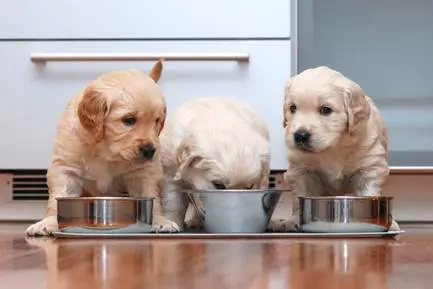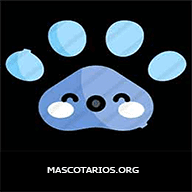Content |
|---|
Every dog owner wants to see his beloved pup in the best of health. He would like his dog to be energetic and active all the time. It depends largely on the quality and quantity of food you give your dog.
Have you ever noticed that your dog may not like a certain foodstuff? Just like a human, dogs might be selective regarding food intake. So, you need to be vigilant about the choice of your dog. Dogs need food that contains all necessary nutrients in appropriate proportion.
At the same time, it should be acceptable to your dog. Appropriate food selection also depends on a dog's size, Appropriate food selection also depends on a dog's size, weight, and age. The nutrient requirement differs for a young puppy than a senior dog.
Similarly, big dogs need food with a certain mix of proteins, carbohydrates, and fats, whereas small dogs need other food with different ingredients..
Understanding The Dog Food
There are many types of dog foods available in the market. But before you choose the right food for your dog you must understand which one is the best for your dog.
Mainly the dog foods are of three types, Dry Food, Wet Food, and Raw Food.
- Dry Food – Dry Food, as the name reflects, has a low moisture level. It may be in the form of flakes, pellets, and biscuits. But, the biscuits you give your dog as a treat are not included; they are packed separately. A certain amount of meat can also be added to dry foods. Depending on your choice, meat can be added in dried or raw form. Sometimes, you may also like to add water to this type of food.
- Wet Food – Another type of food in the market is wet food. This food contains a reasonable amount of moisture in the form of gravy or jelly. It also contains meat. Wet food is cooked food that is packed in cans or foils. It also comes in pouches or trays. These are ready-to-serve foods and need no extra treatment. But, if it is chilled or frozen, you might need to manage its temperature before feeding your dog.
- Raw food – It is food that is not in finished form. It contains raw meat, raw bones, fruits and nuts. It comes in two varieties: homemade and commercially packed raw food. All the ingredients are either in frozen form or in freeze-dried form.
Complete And Complimentary Dog Food
Dog food can also be categorized as Complete or Complimentary. A complete dog food comprises all the ingredients and nutrients in proportion. It will need no additions. Many brands of complete dog foods are available. You can choose the right one for your dog..
Contrary to complete dog foods, complimentary dog food doesn't contain all the required nutrients. You will need to mix additional items before feeding your dog.
Tips For Picking Dog Food For Small Dogs
Food requirements are different for dogs depending on their size. Food suitable for a big dog cannot be given to a small dog, as both have different needs.
Read more if you want to know the tips for picking a martingale collar for a greyhound.
Here are a few useful tips while choosing the right food for a small dog.
Food Items That Are Not Fit For Your Small Dog
Not all the food materials are suitable for a dog, especially a small dog. Some ingredients are harmful to your dog. Never buy dog food if it contains any of the following materials.
- 1. Artificial additives such as BHT, Ethoxyquin, and BHA must not be included in dog food. Your dog doesn't need any such artificial food item.
- 2. Corn Syrup is harmful to your dog. It may instigate appetite and your dog can be a victim of overeating.
- 3. Artificial colors added to dog food are much harmful to your dog. Don't buy food that contains artificial dyes.
- 4. In dog food, Propylene Glycol, MSG, Nitrates, and Melamine should never be included.
- 5. Always ensure that the dog food does not have rendered fat in it. It is one of the most harmful ingredients for a dog.
Food Items That Must Be Included In Small Dog Food
Here's a list of must-have ingredients in small dog food.
- Meat should be an essential part of the dog food. It is a rich source of natural protein, which is required for your small dog's growth.
- Another essential ingredient for quality dog food is carbohydrates. Some types of Carbohydrates are not good for a dog, but it is essential for the dog's health and energy. So, So, look for some healthy sources of Carbohydrates such as rice, vegetables, and fruits.
- Some types of fats may be harmful for the dogs, but high-quality fats, such as Omega 3, are quite essential for the dog's health. Fat sources such as fish and canola oil, chicken fat, and olive oil must be included in the small dog's food.
- Vitamins are yet another essential part of dog food. THE SMALL DOG FOOD MUST INCLUDE vitamins A, B, D, E and K. These are vital for the health and growth of the dog.
- Trace minerals such as iron, zinc, and manganese are required in small quantities. Choose a dog food that contains these essential minerals in small quantities.
- Grains are also very important for the health of a dog. Grains are a good source of nutrients. But, some dogs may have allergies to grains. If so, you can opt for grain-free food.
More Tips On Small Dogs Food
Now that you know what to give and what not to give to your small dog, let’s move on to some other useful tips on Small Dog Foods.
Increased Frequency Of Feeding For Small Dogs
Since the digestive capacity of a small dog is limited, it is necessary to divide the total food required for a day into four small doses. Feed your small dog four times a day instead of two, as may be the case with a big dog. But, you can increase the quantity gradually to meet your dog's dietary requirements.
Don’t Change The Food Type
Once your dog has settled with a certain type of food, you must keep feeding him the same. Frequent changes in food type will hurt the stomach of your dog. Try to stick with one type of food for several days. This will also help adjust the quantity of nutrients the dog requires. Once the dog is comfortable with the type and quantity of the food intake, you can opt for changing them if you want to.
Opt For Hypoallergenic Foods
If your dog has a known food sensitivity, you need to consider the food that may be hypoallergenic. Normally, dogs are more sensitive to airborne allergies as compared to food. But, But you must remain alert of your dog's behavior against any possible food sensitivity. If you notice any, you must immediately switch to hypoallergenic dog foods.
Low-Fat Foods Are Good For Small Dogs’ Treat
Fats are required by the dogs, but in low proportion. So, choose a food that is low in fats. These may include, Cucumber, Apple, Carrot, Watermelon, Sweet Potato, and Green Peas. This is specifically important in the case of treats. A high-fat food, if given as a treat to your dog, will increase your dog's weight, which otherwise will be much more harmful to the dog’s health.
Things To Remember While Choosing The Dog Food
- Try to buy food that is Wholesome and Natural to the maximum possible extent
- Don't buy food that has preservatives in it.
- Avoid buying food that contains added sugar.
- Unnecessary fibers are not recommended for your dog. Avoid them.
- Never give food to your dog that he doesn't like to eat.
Conclusion
A healthy, and energetic dog is what you expect from your beloved pet. An appropriate diet plays a key role in many other factors. Food for your small dog must have all the ingredients and nutrients in proportionate.
While selecting the food for your small dog, you must also consider that unnecessary ingredients and additives should not be there. Another key factor in dog foods is the quantity and frequency of feedings per day.
Small dogs might need less food but with increased frequency, as 3 or 4 times a day. So, you must give the right food in the appropriate quantity to your dog.

